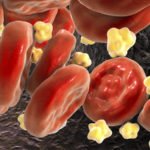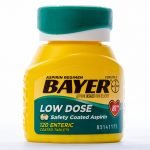As the government steps up its campaign to get every US citizen over diaper age to get a flu shot this year, skeptics continue to voice concern that the vaccine doesn’t actually prevent the flu. Now a new and significant voice has joined the chorus of objections. An article in the latest issue of the Archives of Pediatrics & Adolescent Medicine reports on a recent study that concludes — no surprises here — that the vaccine doesn’t do the magic it’s supposed to, after all. Researchers at the University of Rochester studied 414 kids under the age of five who contracted the flu from 2003-2005, as well as 5000 who did not during the same time period. Turns out that the flu shot made not a whit of difference. The immunized kids stood an equal chance of getting the flu, visiting the doctor, and ending up in the hospital as did the kids who never got the vaccine.
Meanwhile, The Centers for Disease Control (CDC) issued an advisory a few months ago urging that all kids from age six months through eighteen years get the vaccine in 2008. Previously, the agency recommended the vaccine only for children up to age five. This latest initiative will add another 30 million kids to the ranks of the vaccinated. According to Dr. Renee Jenkins, president of the American Pediatric Society, mass vaccination is important since children get the flu at two to three times the rate of adults. In fact, the flu shot mania has extended to pregnant women. In September, The American College of Obstetricians and Gynecologists issued a news release urging all expectant mothers to get vaccinated.
Parents are being advised to disregard any studies that show the vaccine doesn’t work, and especially this latest study, because the vaccine has the “potential“to protect against flu…or at least to mitigate the severity of its symptoms. Advocates dismiss the recent study because the research was based on vaccines administered in the past two years during which the strain of flu used in the vaccine happened to be a mismatch with the flu actually infecting people. But as I’ve described in past blogs, the flu vaccine is always a crapshoot. Scientists formulate the vaccine almost an entire year before flu season hits, based on the strain of flu common at the time. Typically, by the time the flu season rolls around, new strains of the virus have appeared, rendering the vaccine useless.
As Dr. Geoffrey Weinberg, one of the researchers, said, “In some circumstances, it is like forecasting the weather. Sometimes we are right on, and sometimes we are off.”
The whimsical nature of the flu vaccine’s effectiveness might not be an issue, except for the fact that it can cause serious, even life-threatening, complications as I’ve described before. The flu vaccine has been implicated in side effects ranging from severe headaches to Guillain-Barr Syndrome, which causes paralysis, as well as allergic reactions resulting in death. Add to that the fact that a number of earlier studies also have found the shot useless. A study cited in the Cochrane Review found that “in children under two years old, inactivated vaccines had the same effectiveness as a placebo.”
And finally, in view of the CDC’s pronouncement that 76 children died from influenza last year, consider earlier claims from the British Medical Journal that CDC estimates of death from flu are wildly exaggerated. (It’s worthwhile to note that over one-third of pediatric flu deaths actually are caused by staph infections — which the vaccine certainly doesn’t prevent.) This means that millions upon millions of kids will get the vaccine, probably derive utterly no benefit, and expose themselves to risk of complications from that vaccine in order to gain protection from what’s probably a false threat.
The so-called experts say that chances of protection increase if kids receive another form of the vaccine — the nasal spray called “FluMist,” which they believe will offer immunity amounting to the same level of protection that adults benefit from (less than 60-percent). The good thing about the nasal spray, according to an article in Time Magazine, is that it uses live flu virus that replicates rapidly. If the wrong flu strain is used, the rapid replication can cause mutations, “some of which may actually end up matching the flu strain circulating in the community.”
Once again, this crapshoot mentality doesn’t exactly inspire confidence — this waiting “with fingers crossed” for the right mutation to occur. Meanwhile, the vaccine may still contain mercury-based Thimerosal, formaldehyde, aluminum, and antifreeze. The media pushes the vaccine as if it’s the holy grail of immunity, and while it is possible that it will protect your kid from the flu if the formula is right this year, a holy grail it ain’t. Whether or not you take your child to get the vaccine, you’d be wise to focus on boosting your child’s immunity — a much more beneficial alternative. For specific tips, see my suggestions here.
:hc












The study itself can be found here: http://archpedi.ama-assn.org/cgi/content/full/162/10/943
cheers
johan
Do you have a suggestion for something I can do to detox my husband aflter his shots? He works for the Air Force and he is forced to receive flu shots and this year he was also given typhoid, he came home not feeling the greatest the other day. thank you, Leta Scarry Wildomar, Ca